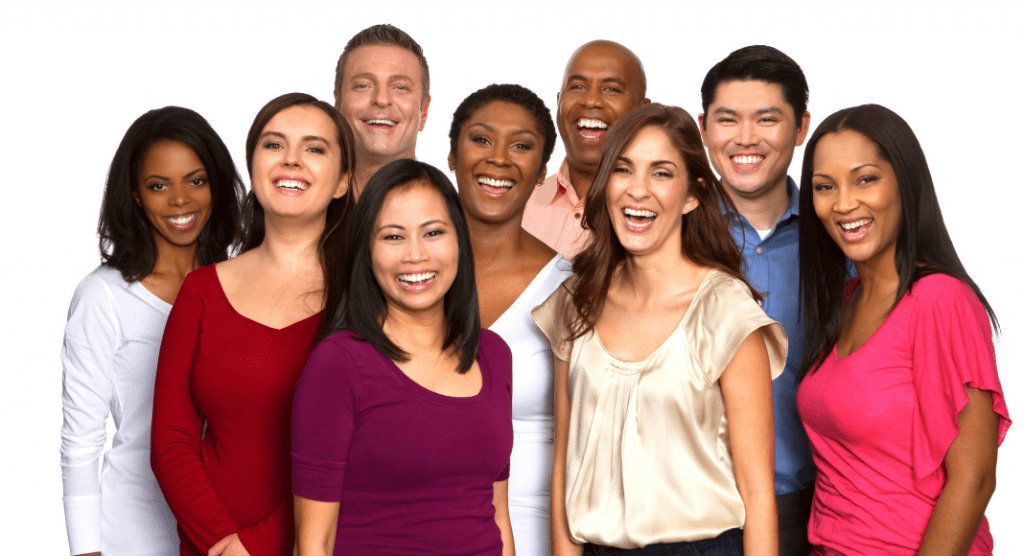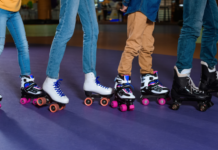 Before we dive in, I want to set the groundwork for your receptiveness.
Before we dive in, I want to set the groundwork for your receptiveness.
Regardless of your race, ethnicity, age, gender, religion, sexual orientation, gender identity, gender expression, disability, economic status, or any other demographic identifier, you are welcome and accepted here. You are whole. You are enough.
Diversity, Equity, Inclusion, and Belonging (DEIB) can elicit deep-seated thoughts, uncomfortable conversations, courageous self-reflection, honest reactions, and ideally, personal evolution.
This is a look inside my mind, based on my story. Your story may be different. Still, I honor the life you’ve lived. As you read this piece and continue in your day, please try to honor the struggles, success, and experiences of all, whether it seems relatable or not.
Let’s get started with an open mind and an open heart.
Our Duty to Diversity, Equity, Inclusion, and Belonging
You’re about to read a conversation between my oldest friend and me. We go back to middle school in South Florida, where we met on the basketball team. An unlikely pair, she was nearly six feet and I a measly five feet and two inches, give or take an inch.
Her nickname for me was Shrimp. She was a grade older than me. I was smart but had to diligently study the notes I wrote in my classes. She was brilliant, could spend half her day in the coach’s office and still pass classes with flying colors. She was quiet and reserved. I was loud, nosey, and probably “a bit too much” for her at times.
Our relationship continued to grow, even after attending different high schools, different colleges, and now living in different cities. Now, we usually refer to each other as sisters rather than friends. So when I had a question about a new term I’d learned and how it may relate to our bond, I knew I could be vulnerable with her and she’d be equally as vulnerable with me.
Here is how our (text) conversation went:
Me: Do you code switch with me?
A: I have no idea what that means. lol
Me: Really?
A: Honestly. Never heard of that term.
I proceeded to send her “I‘m Exhausted From Trying To Be The ‘Right’ Kind Of Black Girl At Work” published by HuffPost, and “Code-Switching is Not Trying to Fit in to White Culture, It’s Surviving It” published by Yes! Magazine.
A: Well, already off the title. Yes, I feel the same way.
Me: Taken from a Junior League of Columbia DEIB 10-Day Challenge email…“For example, many Black people have said they switch to a ‘white voice’ when speaking to colleagues, typically more high-pitched and enthusiastic.”
A: I don’t do that around you. Or my long-term friends. Because you guys know me. And I know I don’t have to do that. But at work, yes.
Me: I mean, it saddens me that you have to do it at all but I’m glad you don’t do it with me. If you did, I’d tell you you’re allowed to be as you are here. That our friendship is a safe place.
A: I work around all white people. Even when I get excited about something they’ll make comments like “calm down.”
She continued.
A: And it’s frustrating because they do have preconceived notions about black women and it’s annoying AF. Even when I wear my hair out in its natural state they make ignorant comments or when I don’t enunciate my words or say a slang word out in the field. It never ends. It is very exhausting. I could go on and on.
 Just hours before, during a “Let’s Talk Race” discussion led by Richland Library, I heard similar stories. Similar sentiments. Similar instances of ignorance, criticism, and judgment from white individuals towards non-white individuals. In fact, it’s that same discussion from the night before that made me ask my oldest friend, my sister, the question about code-switching.
Just hours before, during a “Let’s Talk Race” discussion led by Richland Library, I heard similar stories. Similar sentiments. Similar instances of ignorance, criticism, and judgment from white individuals towards non-white individuals. In fact, it’s that same discussion from the night before that made me ask my oldest friend, my sister, the question about code-switching.
Every day I try to model authenticity for my children. It’s become a buzzword from social media influencers to fitness instructors, trying to inspire a throng of gym-goers and exercise enthusiasts. Yet society has put so much pressure on minorities to assimilate and “fit in” in order to make others feel comfortable and secure, creating a false narrative of what is acceptable, civilized, and normal means.
Instead of embracing the expression of marginalized cultures and personalities, and asking ourselves what is so threatening about the use of different vernacular, different clothing options, different professional standards, we impose unequal and unfounded expectations on those who dare stand up, speak up, and own their individuality …doesn’t that seem odd to anyone else?
The underlying message is “be your true self, as long as it fits into the box of what society (white privilege, cisgender privilege, etc.) deems appropriate.”
This is where I may lose people that feel uncomfortable and/or offended by the phrase “white privilege,” but I urge you to take a few deep breaths and keep going. Dive deeper.
Whiteness is not a shame fest.
Read that again. Whiteness is not a shame fest.
Shame is counterproductive to a growth mindset. Privilege plays a role in people’s lives in varying degrees, including as it relates to race. I’d be remiss if I didn’t admit my own privilege as a white, able-bodied, heterosexual woman from a well-off family.
Here’s how you can test your own privilege using the Put a Finger UP challenge, Richland Library’s Jessica Blizzard’s adaptation of the original Check Your Privilege challenge created and popularized by Virginia-resident and TikToker, Kenya Bundy.
The activity is meant to give you the chance to understand, evaluate, and compare your own personal experiences with that of others, hopefully in an informative and enlightening way.
To begin, hold both hands up and place all 10 fingers down. Put up a finger with each scenario that you’ve experienced directly.
Scenarios:
- If the primary language spoken in your household growing up was English, put a finger up.
- If your parents or guardians graduated from college, put a finger up.
- If you can show affection to your romantic partner in public without fear of ridicule or violence, put a finger up.
- If you can go anywhere in the country, and easily find the kinds of hair products you need and/or cosmetics that match your skin color, put a finger up.
- If you can make mistakes and not have people attribute your behavior to flaws in your racial or gender group put a finger up.
- If you can visit a new place without having to consider whether they have entryways, seating, or bathrooms that will accommodate you, put a finger up.
- If you have a college degree, put a finger up.
- If your gender expression matches the sex you were assigned at birth, put a finger up.
- If you can visit a bar alone or walk home alone without the fear of being sexually assaulted, put a finger up.
- If you were born in the United States put a finger up.
- If your body type is relatively thin and/or muscular put a finger up.
- If you have health insurance, put a finger up.
- If you would not hesitate to call the police when trouble occurs, put a finger up.
I don’t know about you, but I needed 11 fingers to complete the activity. 11 out of 13. Let’s pause and let our responses sink in for a moment. How did your scenario responses compare to mine? Was the outcome of the activity above as you expected?
 Preconceived notions, we all have them. It’s how our minds process information, allowing us to move through the world. How easily can you identify them and correct them? Are you willing and able to look outside what you’ve become accustomed to in order to acknowledge the experiences of your neighbors, coworkers, friends, family members, acquaintances, and complete strangers?
Preconceived notions, we all have them. It’s how our minds process information, allowing us to move through the world. How easily can you identify them and correct them? Are you willing and able to look outside what you’ve become accustomed to in order to acknowledge the experiences of your neighbors, coworkers, friends, family members, acquaintances, and complete strangers?
It’s through these presumptive beliefs that people can make inaccurate and unfair generalizations, consciously and unconsciously. Comments like “black women are angry,” asking “where are you really from,” stating “you’re so well-spoken,” or, in my experience, offering the feedback that “you don’t look like a Jew.” These microaggressions, closely linked to implicit bias, reinforce the acceptance of conversations that start with “those people” or “you people”…as the systematic hurdles grow taller, society continues to distance itself from historical education that allows people to learn from prior generational mistakes, and people appear more divided than ever.
Personally, I don’t feel like I’m being blamed for slavery or segregation, but I do feel a responsibility to do my part in advancing society through education, inspiration, and action. Similarly, I don’t blame all blond-haired blue-eyed individuals for the Holocaust. Again, just my perspective. How do the sayings go? “Your light doesn’t dim when you ignite someone else’s flame” and “a rising tide lifts all boats.”
Next time you witness a questionable statement, say something. Lead with curiosity. Use intuitive listening (most of us stop at subjective and objective listening). Challenge your own perspective and join me outside the box. Awareness is the first step, so don’t beat yourself up. There’s room for mistakes. Heck, I too have a lot more to learn having recently said something like “aren’t we all immigrants?”
The answer is no. African Americans and Native Americans aren’t immigrants, as I was delicately reminded by Dr. Jennifer H. Gunter, Director of Collaborative on Race and Interim Director of DEI, College of Arts and Sciences at the University of South Carolina.
Native Americans did not immigrate to what is now the United States, rather, the Indigenous people were colonized, displaced, systematically dehumanized, and more by European immigrants. It was an act of genocide. Similarly, African Americans did not immigrate to this land. Instead, they were kidnapped, trafficked, and enslaved; excluding them from the most common usage of the word “immigrant.”
Descendents of both populations remain in our country today. Regardless of where I was coming from and my intent, that statement was hurtful. Often used to defend against immigrant populations, it often undermines the history of key groups. Conscious intent may not be to harm but it can still be harmful.
Just try, without reciprocal retribution. Then learn more. It’s our duty to DEIB and the people of our past, present, and future to create a world fit for everyone.
I’ll leave you with these two final thoughts.
“I think the most persuasive thing that I’ve learned from the research around parenting…. Is really be the adult you want your children to grow up to be.”
Brené Brown, Researcher, Professor, Author, and Host of Unlocking Us with Brené Brown.
How can you align your actions with your words for a better tomorrow?
“Just because, maybe a culture is known to have misogyny…it doesn’t mean you throw the baby out with the bathwater. It doesn’t mean these men are bad men. Right? This idea of toxic masculinity for so many men, they feel like ‘oh so I’m just toxic now? I’m just bad?’ No. The answer is no. You’re raised in a culture, you’re raised in a system, that encourages these qualities and tells you to dismiss these other ones…”
Justin Baldoni, Actor, Director, and Host of The Man Enough Podcast
To say Asian people are this, LatinX communities are this, Muslim women are this, Homosexual men are this, disabled children are this, on and on, requires dissection. Why do you feel that way? What happened? What did you hear? Is it a realistic thought? Is it fair? It is accurate?














